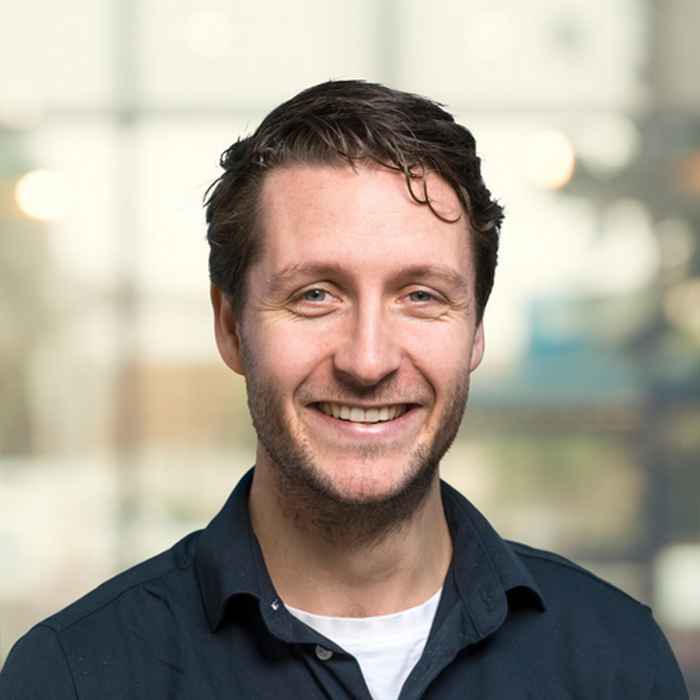‘Beta-Gamma gave me the tools to tackle complex problems’
10 October 2024

Like many other students, Tim hesitated between different studies. ‘I also seriously looked at Interdisciplinary Social Sciences, because that study has the same broad approach,’ he says. ‘But I was afraid I would miss the science subjects.’ In the end, choosing Beta-Gamma, combined with his desire to study in Amsterdam, was a long shot. ‘Amsterdam attracted me tremendously, and I have never regretted that,’ he says.
A close-knit group of students
Beta-Gamma is known not only for its interdisciplinary set-up, but also for the strong group feeling among students. Tim remembers his time at the programme fondly: the group feeling among the fellow students was very special. I never experienced this in any other study or organisation after that.’
Due to the intensive format of the programme and joint subjects, a close-knit group quickly grew among the students. ‘You are all in the same boat and make long days full of lectures and projects. That creates a strong bond.’
From biology to business development
After his bachelor's, Tim chose a Biology major and continued his studies with the Master's in Biological Sciences: Ecology & Evolution. Although this scientific direction seemed logical at the time, he soon discovered that his ambitions lay elsewhere. ‘In hindsight, I might have been better off choosing an applied master's, because I actually already knew I didn't want to go into science,’ Tim says.
During his master's, he took the Tesla Minor (now known as Collective Futures), which gave his career a new direction. ‘This minor not only gave me relevant work experience, but also many new contacts and skills that you don't gain in an average academic study. If you are planning to work outside academia but don't yet know exactly where, I can definitely recommend this minor.’
After his studies, Tim found his current job at TNO, the largest independent research organisation in the Netherlands, where he now works as Business Developer. ‘My work focuses on system modelling for the energy and materials transition. This means I do a lot of strategic thinking and bring in projects. I often speak to people from different sectors, from business to government.’
The added value of interdisciplinary study
In his current job, Tim notices daily how valuable his interdisciplinary background is. ‘I am now working on the circular economy, a typical example of a complex problem that you cannot solve from one angle,’ he explains. ‘Beta-Gamma teaches you to integrate scientific insights from different disciplines. This helps me tremendously in my work, as I often have to switch between the views of different organisations, such as companies, governments and NGOs.’
Advice for future students
For current and future Bèta-gamma students, Tim has some valuable advice. ‘From time to time, think about what you want to do after your studies, and talk about it with friends, family or fellow students,’ he says. ‘But also enjoy the moment and the education you get to pursue. And above all, don't be afraid that choosing the wrong major (specialisation, ed.) will be disastrous for your future. In the end, most roads converge again.’
In his work at TNO, Tim still uses his interdisciplinary Bèta-gamma background every day: ‘Bèta-gamma gave me the tools to approach complex problems from different angles, and that is something that comes in handy in any career,’ he concludes.
Future in sustainability
Tim sees himself remaining active in the sustainability sector in the coming years. ‘I know I don't want to go in any other direction than sustainability for the time being. It is interesting, but above all very important, for now and the future. I hope I can contribute to that with my work.’